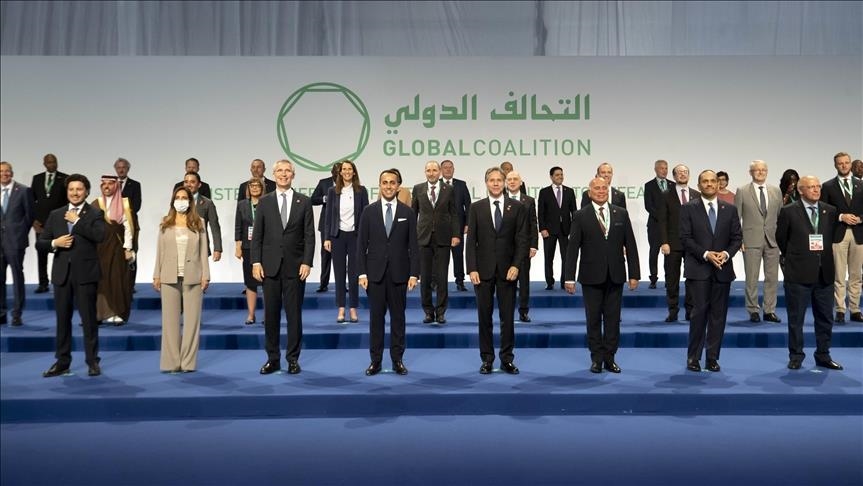Given the specific titles and working groups defined for that international group, at the first glance it seems that economic issues and how to manage and solve global economic barriers should have been the axis of the G20 agenda. Of course, the process of world economic development after the relative control of the Coronavirus and also the process of global dealing with that disease and similar contagious diseases in the future was considered by the G20 summit as one of the obstacles to economic development of countries. But despite the aforementioned economic issues and issues such as reduction of corporate tax, it should be noted that at the recent G20 summit, the focus was on political and security issues.
In other words, although the summit of the world’s top 20 economies was expected to focus on economic issues and other issues on the sidelines, it was not at the recent G20 summit, and political issues cast a shadow on it. The objective sign of this claim is that both in the literature of the leaders present at the meeting and in the media reports, as well as in the analysis of intellectual circles and think tanks, the weight of political and security issues was much greater. The following are some important political issues raised at the G20 summit:
Restoration of France-US relations: In September, the United States and Britain signed an agreement with Australia called “AUKUS”, under which the United States and Britain pledged to provide a nuclear-powered submarine to Australia. The deal sparked tensions in relations of France with Britain, Australia and the United States, as previously an agreement had been signed between France and Australia under which France pledged to sell submarines to Australia. Australia canceled its agreement with France after signing the AUKUS agreement, declaring that it would prefer nuclear-powered submarines to conventional French submarines. France became very angry and summoned its ambassador.
The G20 summit provided an opportunity for Biden to meet with the French president and, referring to France as the most faithful ally of the United States, called the “AUKUS” agreement an “awkward” deal. The meeting, which took place a day before the Rome summit, received a great deal of attention of the media and intellectual and political circles. The joint meeting of the Presidents of France and the United States led to the issuance of a statement emphasizing the common interests and cooperation of the two countries in various fields. In fact, the meeting once again managed the tensions between European countries and the United States and strengthened the ties between the two sides of the Atlantic. After the meeting, the common positions of France and the United States on various issues such as Iran nuclear deal were highlighted.
Demonstration of a common front against Iran: Prior to the start of the G20 summit, US National Security Adviser Jake Sullivan announced that one of the main targets of Biden’s European trip (to Rome and then Glasgow) was to strengthen a common front against Iran due to delay in the restoration of the Joint Comprehensive Plan of Action (JCPOA). Western countries have cited Iran’s unpreparedness for the resumption of the Vienna talks as the main reason for the delay in JCPOA restoration. In line with this target, Biden met with the leaders of the three European member states of the JCPOA, Germany, France and Britain, to discuss the nuclear deal and other issues related to the Islamic Republic of Iran.
The outcome of Biden’s meeting with the leaders of the three European countries was the issuance of a special statement on the Islamic Republic of Iran, which demonstrated the unity and solidarity of the four Western countries against Iran. The importance of the statement for the United States is that it was issued on the possible eve of the start of negotiations between Iran and 4+1 on the one hand and the November meeting of the International Atomic Energy Agency on the other hand. Many have this assessment that if Iran-West talks do not begin before the last meeting of the IAEA in November 2021, there is this possibility that at the forthcoming meeting of the Board of Governors Iran’s nuclear case will be referred to the UN Security Council one again.
Absence of Chinese President at G20 Summit: Although the Russian President did not attend the meeting and delivered a virtual speech, the Chinese President’s absence in the Rome Summit and then at the Climate Change Summit in Glasgow indicates tensions in relations between China and the West. China is dissatisfied with the US measures, such as signing of the AUKUS agreement with Australia, and criticizes the West’s Cold War view of itself. At the same time, presence of China, as an important economic and political power, is very essential in such meetings for solving common human problems. It is inconceivable that without China, common global issues such as Covid-19 or climate change could be managed.
In conclusion, it should be said that although economic and common human issues were discussed at the G20 summit, the reality is that political issues such as the one described above, as well as issues such as developments in Afghanistan, was more in the spotlight and in that meeting we were witness to the dominance of the margins over the text.










0 Comments